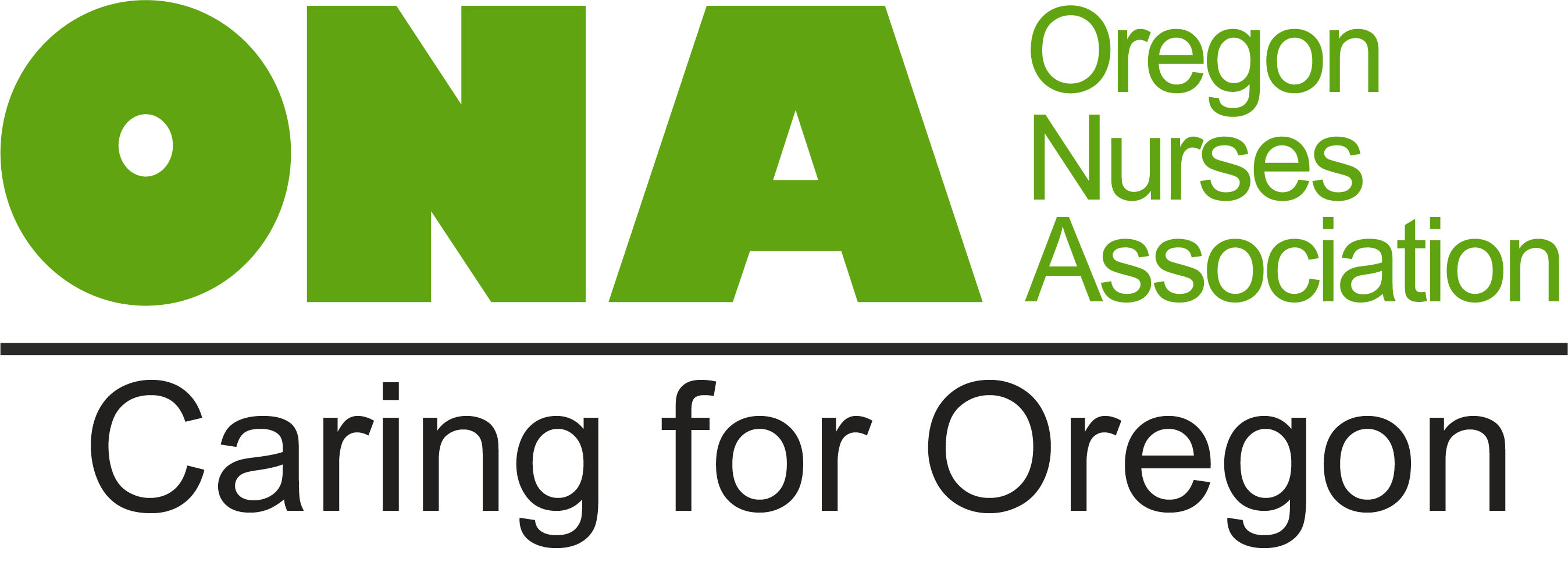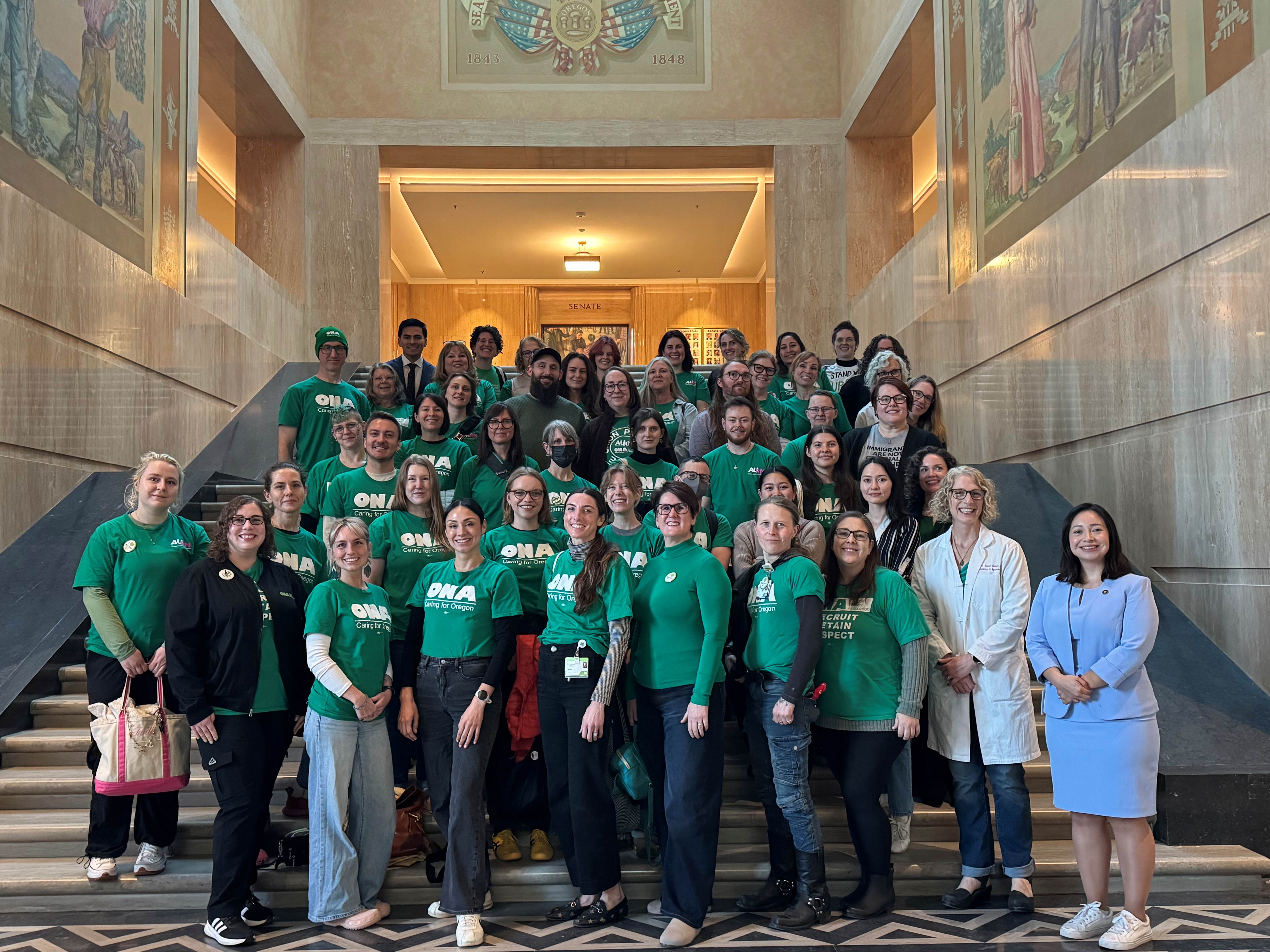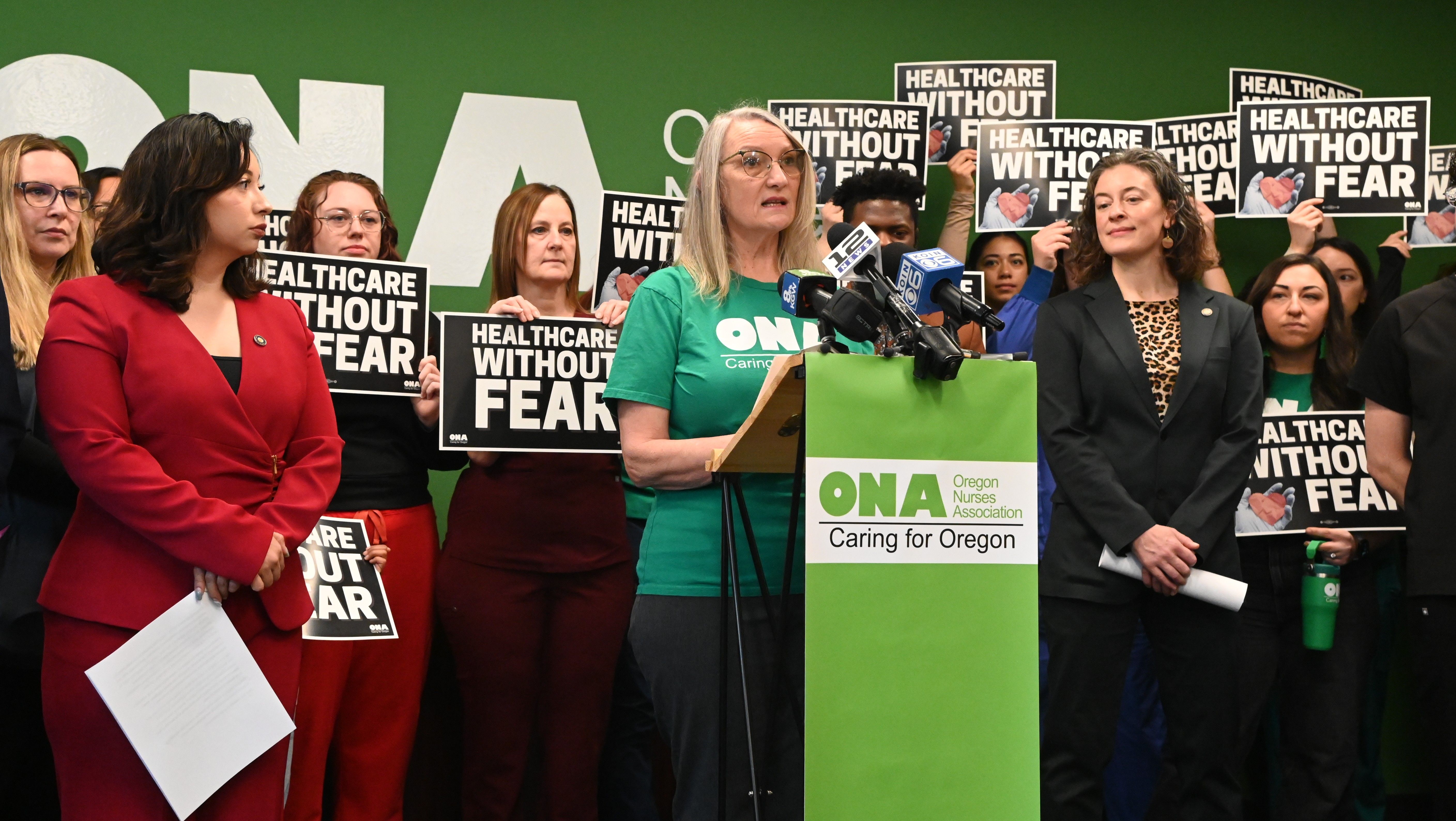Healthcare Providers Testify In Support Of The ‘Healthcare Without Fear Act’ To Hold ICE Accountable And Keep Hospitals Safe For All (Photo)
- 02/04/26
New legislation would hold federal immigration officers accountable in hospitals, protect patients’ and providers’ rights, and ensure everyone can access healthcare without fearing for their health and safety.
(SALEM, Ore.) - Frontline healthcare providers and legal advocates packed a Capitol hearing room and overflow space for the first hearing of the Healthcare Without Fear Act (Oregon Senate Bill 1570-1) Feb. 4. Nurses and allies are backing the bill to hold federal immigration officers accountable to the same hospital standards as state and local law enforcement, protect patients’ and providers’ rights, and ensure hospitals remain safe spaces for all people.
“We are here today because federal agents are interfering with our ability to care for our patients. They are putting community safety at risk. Our neighbors are scared to access the care they may need,” said Ellie, a Portland nurse and ONA member who testified in support of the bill. “We want to ensure that healthcare spaces are safe for our patients and staff. Places where human and civil rights are valued and protected.”
In 2025, the Trump administration eliminated long-standing “sensitive location” protections and began actively targeting hospitals, schools, and places of worship for immigration raids and crackdowns—spreading fear, compromising healthcare and putting lives at risk.
“SB 1570-1 is about a simple but fundamental principle: no one should be afraid to seek medical care. Not for themselves. Not for their children. Not in moments of crisis, pain, or vulnerability,” said Oregon Senator Wlnsvey Campos, a chief sponsor of the bill. “We are living in a moment when immigration enforcement has become more visible, more aggressive, and more unpredictable. Oregon cannot afford to not act in this moment. We need a clear, enforceable statewide standard that protects patients, supports healthcare workers, and strengthens public health.”
Across the country, federal agents from the Department of Homeland Security (DHS)—including Immigration and Customs Enforcement (ICE) and Customs and Border Protection (CBP)—have demonstrated a troubling pattern of violence, harassment, intimidation and unlawful detention of across the country. In Oregon, federal immigration officers recently shot two people in a hospital parking lot in Portland and arrested an entire family while they were trying to take their sick 7-year-old daughter to the ER. Federal officers also bring detainees from the Portland ICE facility to local hospitals for healthcare—where immigration officers have not always followed standard hospital protocols.
Federal agents have reportedly pressured Oregon doctors and nurses to skip recommended healthcare so they could discharge detained patients more quickly; refused to step away during private health consultations which include protected health information or sensitive medical exams; freely roamed patient hallways; and removed hospitalized patients against medical advice. These activities could violate patients' right to privacy, undermine trust in healthcare providers and our health system, jeopardize patients’ care, and create very real safety and security risks for patients and staff. Several nurses provided testimony of their experiences anonymously because they feared retaliation. A nurse who cared for a patient detained by ICE shared:
"They (ICE agents) asked for information regarding the patient's condition multiple times, which I told them was not allowed and that I would not tell them anything. At one point they told me the patient wanted to leave against medical advice, and I told them I had to hear it from the patient themselves ... The patient didn't want to leave and was just scared,” the nurse wrote.
The Healthcare Without Fear Act will establish a statewide standard to prevent hospitals from being weaponized by federal agencies, hold ICE agents accountable in hospitals, protect patients and staff, uphold ethical and legal healthcare principles and ensure the safety of our communities.
The act requires hospitals and clinics to keep federal immigration agents out of patient care spaces without a warrant, classifies immigration status and place of birth as protected health information, safeguards all patients’ private healthcare information, and empowers healthcare providers to share information about patients’ legal rights.
“We want to take care of you, your loved ones, and our community members without the imposed pressure of federal agent overreach and use of force,” said Erica, a nurse and ONA member who testified in support of the bill.
“When federal agents override hospital protocols, they don’t just create confusion—they create fear. Fear that causes patients to delay care. Fear that doesn’t allow first responders and frontline care workers to do our jobs. Fear that fractures trust. Fear that puts lives at risk,” said Oregon Representative Dacia Grayer, a firefighter and paramedic who is also a chief sponsor of the bill. “This legislation protects patients. It protects caregivers. And it upholds a fundamental principle we should all agree on: in moments of medical need, care must always come first.”
California passed a similar bill (Senate Bill 81) in 2025. Oregon’s Healthcare Without Fear Act is the next step in a growing national effort to hold government agents accountable and protect vulnerable patients.
More information on the Healthcare without Fear Act can be found at OregonRN.org/CareWithoutFear
The Healthcare Without Fear Act is part of the 2026 Immigrant Justice Package. More information about other legislation in the 2026 Immigrant Justice Package can be found here.
###



